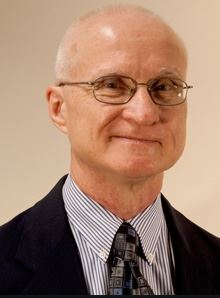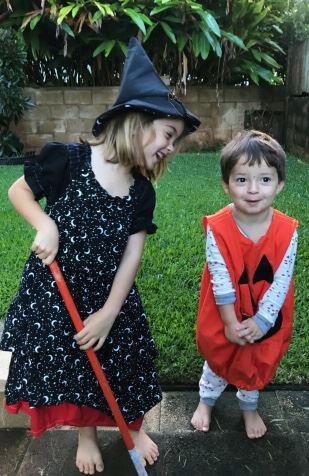 School name: Ithaca College
School name: Ithaca College
Type of school: Regional comprehensive university (but mostly undergraduate)
School locale: Ithaca, NY (Finger Lakes region of upstate NY)
Classes you teach: Research Methods, Research Team, History of Psychology
Average class size: 25 students
What’s the best advice about teaching you’ve ever received?
Students want you to succeed as a teacher as much as you want to succeed, so be prepared and do your best to work with the students. And don’t be afraid to say you don’t know, although as Charles Brewer said, try to reduce the frequency with which you have to say it.
What book or article has shaped your work as a psychology teacher?
Bill McKeachie’s Teaching Tips never goes out of style. That being said, my decades of interacting with people in STP have consistently shaped the way I think about teaching; I’ve benefitted the most simply from the many conversations I’ve had with my good teaching friends and colleagues. As successful teachers know, the interactive, human element is critical for effective teaching and learning. I’ve recognized that again and again in my collaborations with stellar teachers.
Briefly tell us about your favorite lecture topic or course to teach.
I am fortunate to be in a situation where I love all the courses I teach. So all of my courses are my favorite course.
In Research Methods, I stress that what they are learning is relevant if they never do a minute of research after they graduate because they are learning a new way of thinking about complex issues in life. As the maxim states, for every complex question, there is always a simple answer. And it is always wrong. Nothing about human behavior is as simple as we would like it to be, just as most issues in life are more complex than we would want.
So we have to learn that, as scientific and critical thinkers, we have to be willing to change our minds when new, better information appears. Research Methods is an ideal course for students to learn to ask themselves why they believe as they do and what evidence it would take to change their minds.
What the students learn in Research Methods can help them evaluate claims about many complex personal and society issues, even if they don’t involve psychology directly.
In the History of Psychology class, I try to impress to students that history isn’t something that used to be. Because psychology is a human science based in a societal context, many of the same human elements that led to psychology’s development are relevant now. The History of Psychology course is an exercise in identifying how psychologists (and others in our society) have evaluated and categorized people. As the students learn, the thinking has often not changed in the past century.
Students learn about how psychology has dealt with “the other” from within different theoretical frameworks and how our discipline has invariably found ways to incorporate already-existing societal attitudes into a new theoretical framework.
So the History of Psychology course reveals to students how our scientific approaches have differed in the last century and a half but also how psychologists, like others, place their thoughts in a social context that is far from objective.
Material for my classes are accessible through my website: http://barneybeins.com
Briefly describe a favorite assignment or in-class activity.
It is not unusual for people to claim that psychology is the science of the obvious. They hear about research and wonder why anybody bothered to ask the question because the outcome is so obvious. E. C. Sanford reported on this as long ago as 1906. One of my favorite activities involves showing that research results are only obvious after you know what they are. That is, given any research outcome, we can weave a good story (i.e., an interpretation) that makes sense. But how well can we predict that story?
I provide students with potential results of 15 published research studies, but without the results. They try to predict the actual outcome (e.g., A > B, A = B, A < B) and generate the rationale for their predictions.
For example, which of the following outcomes actually occurred?
A. Women wearing lipstick while taking a test score lower than women not wearing lipstick.
B. Women wearing lipstick while taking a test score about the same as women not wearing lipstick.
C. Women wearing lipstick while taking a test score higher than women not wearing lipstick
Palumbo, R., Fairfield, B., Mammarella, N., & Di Domenico, A. (2017). Does make-up make you feel smarter? The “lipstick effect” extended to academic achievement. Cogent Psychology, 4. doi.org/10.1080/23311908.2017.1327635
The actual outcome is C, which 16% of my students guessed correctly. I have tried to avoid “Gotcha” studies where the results are opposite what a person would normally suspect. Across the 15 studies, my students are consistently at chance levels, right around 33% correct.
The question I pose to them has to do with why the “obvious” result wasn’t all that obvious before they knew the actual outcome.
(The entire activity is available on my website: http://barneybeins.com/epa/epa2020.html)
In my other favorite course, History of Psychology, in one unit, I ask students to read reports published a century ago about African Americans. Some of the reports are quite disturbing, but I tell the students that, although psychology today presents a better depiction of “the other,” many of the issues that appear in the research literature are the same as they are today.
What teaching and learning techniques work best for you?
I undoubtedly talk too much in my classes, but for a critical thinking course like Research Methods, breaking the class into discussion pairs gives students the chance to talk about the complexities of the ideas we pursue. In addition, when different pairs report to the class, it become apparent that when issues get complicated, there isn’t just one potential answer. Different explanations can each form part of the answer to a question.
I also create reaction papers for students based on popular media research reports. These assignments require students to assess some methodological concept (e.g., correlation versus causation) but also to draw a conclusion from their perspective as a consumer of the news. By bringing students’ personal reactions into the discussion, they begin to see the relevance of research to their lives.
And just as I create assignments for students, I have a standing assignment for myself that for each class meeting, I need to bring in a new research application or current topic that I can relate to the aspect of research that they are learning about. I often introduce it with a statement of “I just came across this in the news. . . .” Students recognize that research is an ongoing endeavor, which I hope they keep in mind even after the semester ends. In addition, as I spend an hour before every class meeting preparing for it, it doesn’t become stale; I can introduce it in class with enthusiasm.
In addition, over the decades, I have discovered that reading a diversity of nonfiction books informs my teaching, even when the books are not directly tied to the courses I teach. Books about exceptional people provide insights into psychology as a whole. For example, The Witch of Lime Street deals with Harry Houdini’s attempt to spot the trickery that a medium used in supposedly contacting the dead. It turns out that Harvard psychologist William McDougall monitored Houdini’s attempts to debunk the medium called “Margery.”
What’s your workspace like?
I suspect that my workspace is like that of many people whose teaching I respect. I can describe it as books, books, and more books. And being of a certain age, I am surrounded by a lot of paper. Much of the paper involves ideas for my teaching—resources on paper are more user friendly, so I keep the printouts handy for quick reference. (For reasons that should be relatively apparent, there are virtually no printouts of memos from the dean.)
 I also have pictures of my grandchildren running as a slideshow on my computer. Sometimes, it is refreshing to step back from my work just to enjoy their images.
I also have pictures of my grandchildren running as a slideshow on my computer. Sometimes, it is refreshing to step back from my work just to enjoy their images.
Three words that best describe your teaching style.
Humorous, interactive, thoughtful
What is your teaching philosophy in 8 words or fewer?
Try not to be boring
What is something your students would be surprised to learn about you?
They might be surprised at some of the summer and other jobs that I’ve had in my life prior to becoming a professor. Some of these include selling cleaning products door to door, mowing lawns in a cemetery, helping dig graves (very briefly), working in the press room of a newspaper as a paper handler (and proud member of the international union of paper handlers and sheet straighteners), and science reporter for the NPR affiliate in Columbus, Ohio.
What are you currently reading for pleasure?
I am in the middle of two books right now and just finished one.
Bacteria: The Benign, the Bad, and the Beautiful by Trudy Wassenaar
This book is about the hidden world of bacteria around us. Life as we know it would not exist if not for bacteria, although sometimes bacteria destroy life as we know it. They are fascinating, marvelously evolved organisms.
The Old Ball Game: How John McGraw, Christy Mathewson, and the New York Giants Created Modern Baseball by Frank Deford
The history of baseball is populated by quirky and interesting characters. Although we would recognize baseball in 1903 (when the first modern World Series took place) as the game we know now, it has undergone changes that, in the 1910s and 1920s turned it into our modern game.
Three Shot Burst by Phillip DePoy
This is a fun, trashy detective novel for summer reading.
What tech tool could you not live without?
Like everybody else, I’m completely dependent on my cell phone, which I use as a book, telegraphy, encyclopedia, weather forecaster, and other, but seldom as a phone. For teaching, I’m pretty old fashioned: I use a desktop computer, although I gave up on my Apple II computer a long time ago.
What is your hallway chatter like? What do you talk to colleagues about most (whether or not it is related to teaching/school)?
Aside from asking colleagues whether there is a department meeting in the afternoon, I regularly talk about the results of the Ohio State football games (and other sports scores), ancient Roman holidays, and which of our elected officials win the award for having the least grip on sanity. In addition, my colleagues are remarkably helpful about how to navigate through the school’s increasingly frequent changes in software applications.
PSYCHSESSIONS UPDATE: Listen to Barney's keynote address from the 2018 New England Psychological Association conference "Psychology From Beginning To End: What Do We Want Our Students To Learn?"
